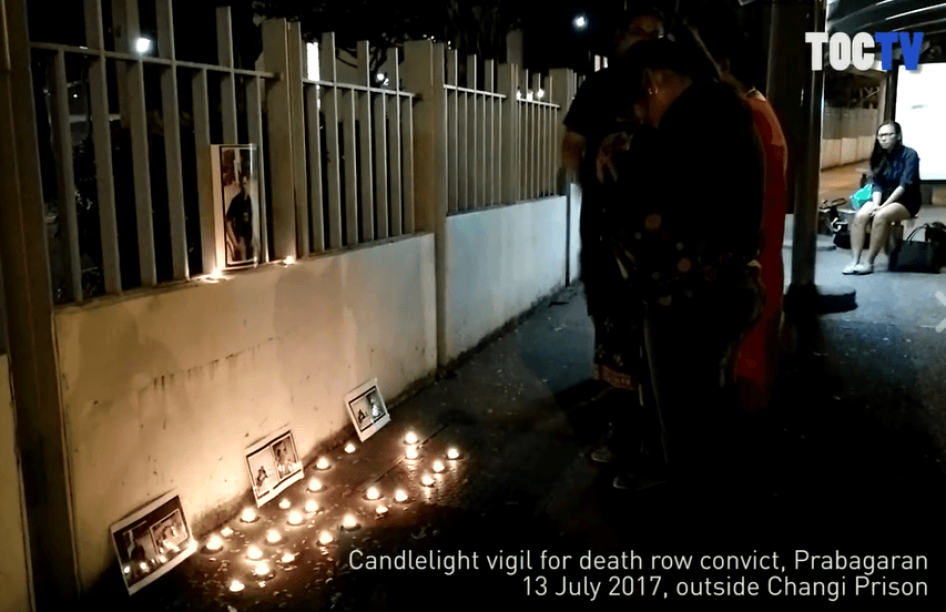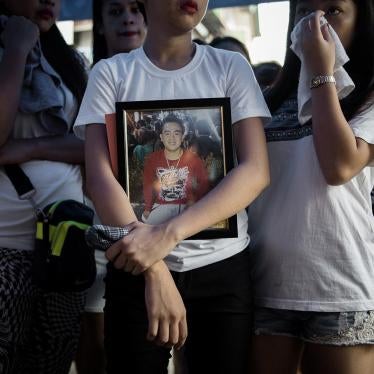(New York) – Singapore authorities should drop their investigation into a peaceful vigil outside Changi prison in July 2017 to support the family of Malaysian national S. Prabagaran, Human Rights Watch said today. The government should end its harassment of activists campaigning against capital punishment and respect their rights to freedom of expression and peaceful assembly.
On July 13, the night before the scheduled execution of S. Prabagaran, a small group gathered outside Changi prison to hold a candlelight vigil with his family. Within 15 minutes, the police arrived and confiscated both the candles and photographs of Prabagaran that had been hung on a fence. However, they told the participants that they did not have to leave if they did not light any more candles.
More than six weeks later, the vigil participants received letters from the Singapore Police Force (SPF) summoning them for questioning on September 7 for holding an assembly without a permit in violation of Singapore’s restrictive Public Order Act. The activists have also been barred from leaving the country.
“The Singapore government seems frightened even by a peaceful candlelight vigil to support the relatives of a condemned man,” said Phil Robertson, deputy Asia director at Human Rights Watch. “Once again Singapore’s draconian restrictions on public assemblies are being used to violate the rights of people to engage in peaceful protests.”
Singapore’s Public Order Act requires a police permit for any “cause-related” assembly held in a public place, or to which the public is invited. Organizing or participating in a protest without a permit is a criminal offense, even if the protest was peaceful and caused no disruption of public order. Under international law, freedom of assembly is a right and not a privilege and should not be subject to prior authorization by the authorities. It is widely accepted that no one should be subject to criminal penalties simply for organizing or participating in a peaceful assembly.
Those summoned to appear for questioning include Kirsten Han, a journalist and member of anti-death penalty organization We Believe in Second Chances; Terry Xu, editor of the online news portal The Online Citizen; Jolovan Wham, migrant worker rights activist; and filmmaker Jason Soo, whose most recent film dealt with the detention of 22 activists under Singapore’s Internal Security Act in 1987. Although the letter the activists received did not mention a ban on travel, Terry Xu was prevented from crossing into Malaysia when he arrived at Woodlands Checkpoint on September 6, and the police have since confirmed that all of those summoned are subject to a travel ban at least until after questioning, and possibly for the duration of the investigation.
“Both the belated criminal investigation and the travel ban have all the hallmarks of a harassment campaign against those who dare to peacefully criticize the government,” Robertson said. “The Singapore government needs to end this dubious investigation, recognize that peaceful protest is part and parcel of the democratic process, and amend the Public Order Act to respect the right to freedom of assembly.”









